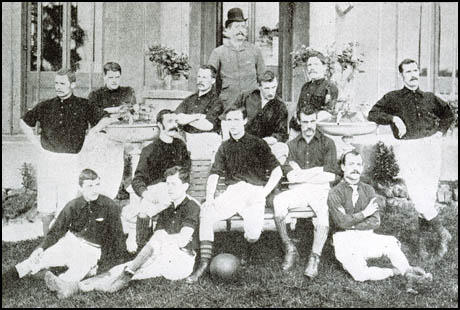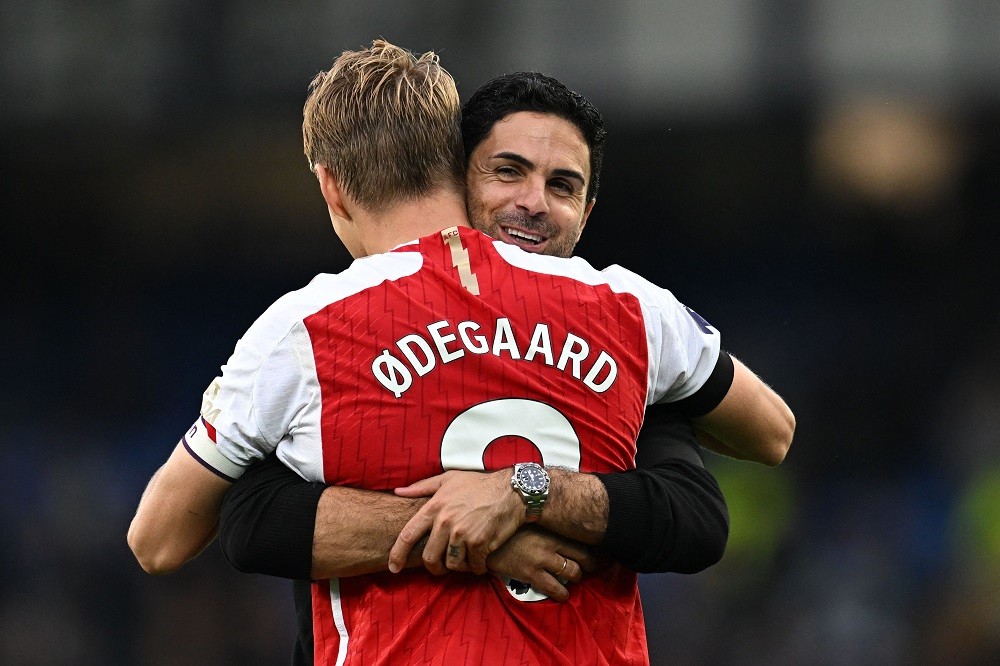The story of Arsenal Football Club is a tapestry woven with the threads of leadership and resilience, embodied by the captains who have led the team.
From the club’s early days to its current status in global football, the captains have played a crucial role in shaping Arsenal’s legacy.
This article delves into the history and impact of these captains, each leaving their unique mark on the club.
 The history of Arsenal Football Club is enriched not just by its victories and challenges, but also by the leaders who have captained the team.
The history of Arsenal Football Club is enriched not just by its victories and challenges, but also by the leaders who have captained the team.
The role of a captain in football extends beyond the pitch; it embodies leadership, resilience, and the spirit of the club.
From the early days of professionalism to the modern era of global football, Arsenal’s captains have been instrumental in shaping the club’s legacy.
Here, we delve into the context and significance of some of these captains, reflecting on their contributions to Arsenal’s storied history.
In the beginning, Arsenal, then known as Dial Square and later Royal Arsenal, was captained by David Danskin. A founding member of the club, Danskin was more than just a captain; he was a pioneer who helped establish the club’s foundation in the late 19th century.
As the club transitioned into professionalism, the captaincy saw more frequent changes. This period was marked by leaders like Morris Bates, who captained the club during a time of significant transition, and Bill Julian, who led the team amidst evolving dynamics in English football.
One of the most enduring captains in the early 20th century was Percy Sands. His tenure from 1906 to 1915, and then during wartime football, highlighted his long-term commitment and influence at the club. Sands was a local lad, embodying the community spirit of Arsenal.
Post-war, the captaincy was taken up by Joe Shaw, a versatile player who later became a successful manager, guiding Arsenal to a league title. The 1920s and 1930s saw leaders like Charlie Buchan, who brought experience and tactical knowledge, and Tom Parker, under whose captaincy Arsenal won their first-ever FA Cup in 1930.
Alex James, a key figure in the 1930s Arsenal side, took over the captaincy mid-season in 1932-33, leading the club during a golden era where they dominated English football. Eddie Hapgood, who captained the club through the late 1930s and the wartime period, was known for his elegant playing style and leadership qualities.
The post-war era saw George Male and Joe Mercer lead the side, with Mercer being particularly influential in rebuilding the team and laying the groundwork for future success.
In the modern era, Frank McLintock led the team to an Inter-Cities Fairs Cup win and a historic league and FA Cup double in 1970-71. His leadership on and off the pitch was pivotal during this successful period.
The late 1980s saw the emergence of Tony Adams, who epitomised the spirit and tenacity of Arsenal. Adams’ tenure as captain from 1988 to 2002 coincided with one of the most successful periods in the club’s history, including multiple league titles and FA Cup victories.
Patrick Vieira and Thierry Henry continued this legacy in the early 2000s, leading the team during the unbeaten “Invincibles” season and maintaining Arsenal’s status at the top of English football.
In more recent years, players like Cesc Fabregas, Robin van Persie, and Pierre-Emerick Aubameyang have worn the captain’s armband, each adding their chapter to the Arsenal story.
As the list of captains continues to grow, with Martin Odegaard being the latest to join this illustrious group, each captain has left an indelible mark on the club’s history.
Their leadership has not only guided the team through matches but has also helped shape the very identity of Arsenal Football Club.
Arsenal Captains:
- David Danskin: 1886-89
- Morris Bates: 1889-90
- Morris Bates / William Stewart / Humphrey Barbour / Peter Connolly / John McBean / Bill Julian: 1890-91
- Bill Julian / David Howat / Robert Buist / William Stewart / Tom Graham / Sandy Robertson: 1891-92
- Charles Booth: 1892-93
- Joe Powell: 1893-94
- David Howat: 1894-95
- Caesar Jenkyns: 1895-96
- Gavin Crawford: 1896-98
- John Anderson: 1898-99
- Joe Murphy: 1899-1900
- Duncan McNichol: 1900-01
- Jimmy Jackson: 1901-05
- John Dick: 1905-06
- Percy Sands: 1906-15 (and likely during 1915-19)
- Joe Shaw: 1919-20
- Frank Bradshaw: 1920-22
- Alec Graham: 1922-23
- Billy Blyth: 1923-24, 1928-29
- Alf Baker: 1924-25
- Charlie Buchan: 1925-28
- Tom Parker: 1929-32
- Charlie Jones / Alex James: 1932-33
- Alex James: 1933-37
- Eddie Hapgood: 1937-46
- George Male: 1946-47
- Joe Mercer: 1947-53
- Jimmy Logie / Walley Barnes: 1954-55
- Walley Barnes / Don Roper / Cliff Holton: 1955-56
- Peter Goring / Cliff Holton: 1956-57
- Dennis Evans / Dave Bowen: 1957-58
- Dave Bowen: 1958-59
- Vic Groves: 1959-62
- Terry Neill: 1962-63
- George Eastham: 1963-66
- Don Howe: 1966-67
- Frank McLintock: 1967-73
- Bob McNab / Alan Ball: 1973-75
- Eddie Kelly / Terry Mancini / Alan Ball: 1975-77
- Pat Rice: 1977-80
- David O’Leary: 1980-83
- Graham Rix: 1983-86
- Kenny Sansom / Tony Adams: 1987-88
- Tony Adams: 1988-2002
- Patrick Vieira: 2002-05
- Thierry Henry: 2005-07
- William Gallas: 2007-08
- William Gallas / Cesc Fabregas: 2008-09
- Cesc Fabregas: 2009-11
- Robin van Persie: 2011-12
- Thomas Vermaelen: 2012-14
- Mikel Arteta: 2014-16
- Per Mertesacker: 2016-18
- Laurent Koscielny: 2018-19
- Granit Xhaka / Pierre-Emerick Aubameyang: 2019-20
- Pierre-Emerick Aubameyang: 2020-21
- Martin Odegaard: From 2022

